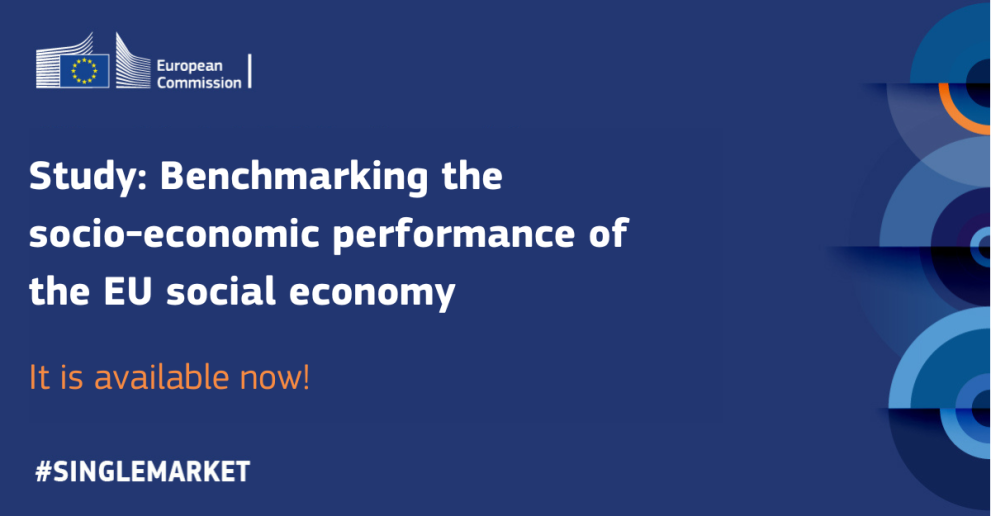
The report summarising findings of the project "Benchmarking the socio-economic performance of the EU social economy" has just been published. The project had two interconnected aims: to represent the social economy of today based on current data as well as to identify methodological and operational tools to improve this representation.
The study collects and analyses quantitative and qualitative data the social economy ecosystem as well as their contribution to a sustainable, innovative and resilient economy and society.
At least 11.5 million people – 6.3% of the employed population – are occupied in the social economy. Across the 27 Member States, the social economy includes more than 4.3 million entities. It is also estimated that there are more than 246 000 social enterprises. The report underlines also that there are social economy organisations in all EU countries, though some operate outside the radar. What changes across EU Member States is how much such entities are acknowledged by policymakers, the general public and grassroots organisations - and recognise themselves - as part of the social economy. Currently, only a few Member States have national statistics specifically measuring the social economy, including different types of social economy organisations, employment, the number of volunteers and the value added.
This study sets also a list of recommendations to improve the representation of the social economy. Recommendations are addressed to different key actors: the European Commission (including Eurostat); the research community; national/local governments and/or national statistical offices; and social economy umbrella organisations.
You can read the executive summary of the study in English, French, and German.
Details
- Publication date
- 19 September 2024
- Author
- European Innovation Council and SMEs Executive Agency
